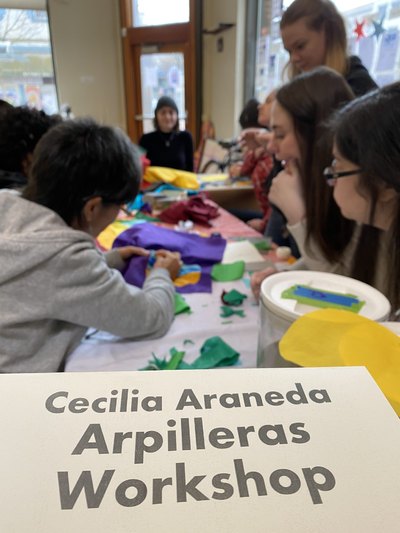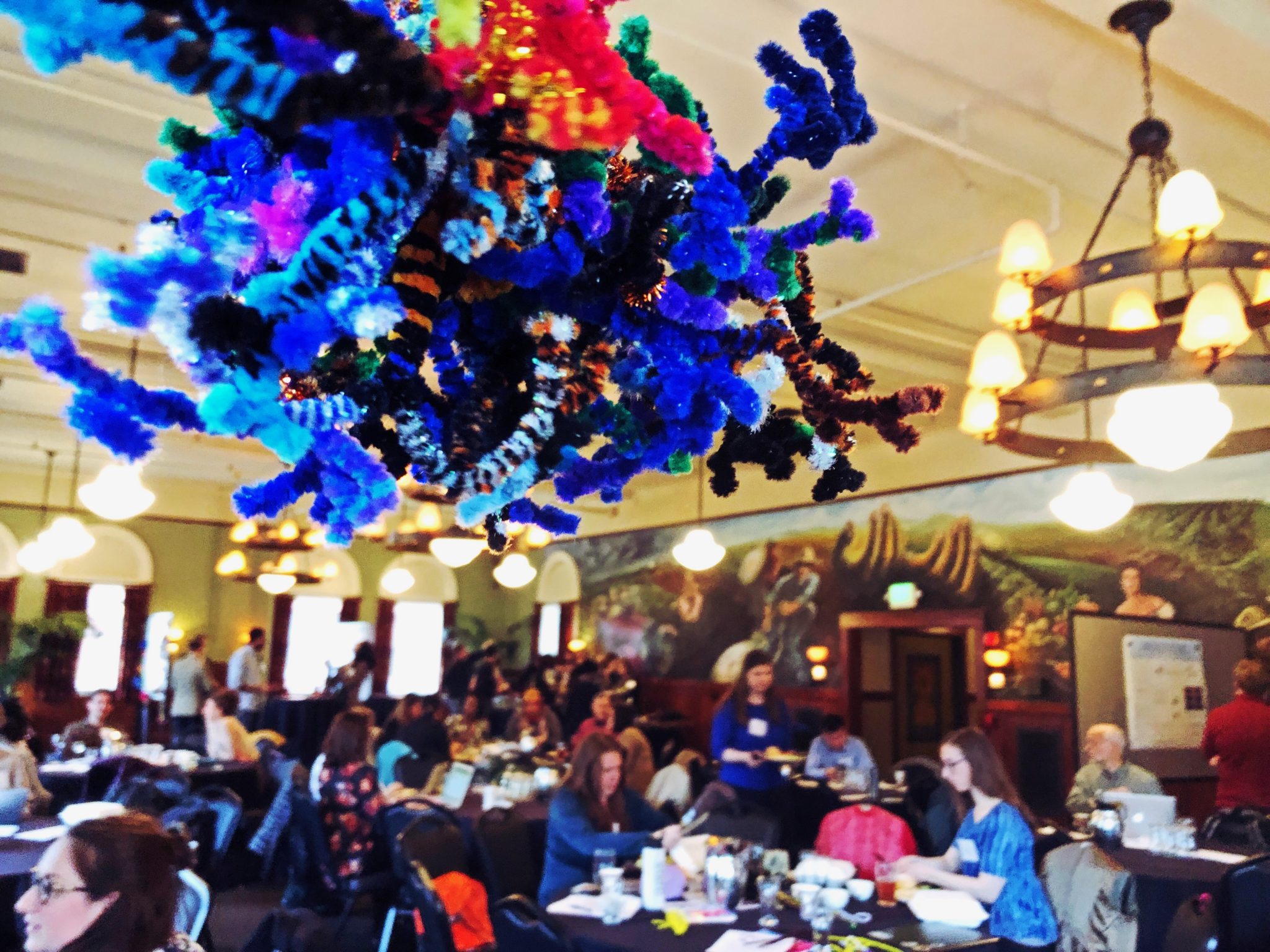
- This event has passed.
SfN Oregon/SWWA Chapter Meeting **CANCELED
April 17, 2020 @ 9:00 am - 8:00 pm
WHAT: Society for Neuroscience Oregon/SW Washington Chapter Meeting
Canceled due to coronavirus concerns
WHERE: McMenamin’s Edgefield, 2126 SW Halsey St, Troutdale, OR 97060
WHEN: Friday, April 17 (event goes through Saturday, April 18)
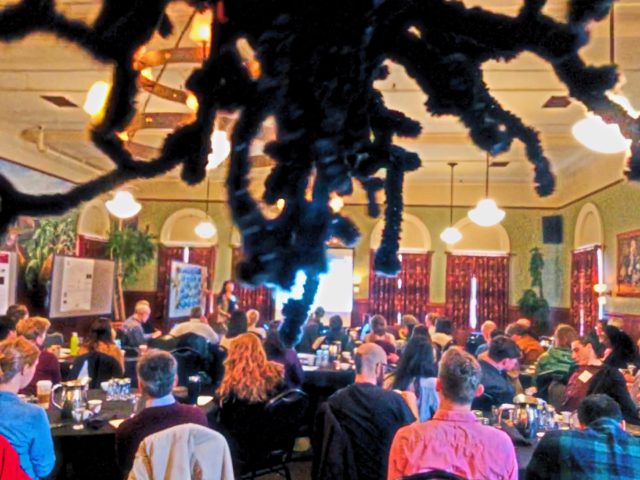
Society for Neuroscience Oregon/SW Washington Chapter
The Oregon/Southwest Washington Chapter is the local group affiliated with the Society for Neuroscience. Our goal is to be a networking resource for neuroscience students, postdoctoral scholars and faculty throughout the region. Our annual meeting in the spring brings together scientists to share projects, network with elected officials and government entities, and engage with colleagues from across the state.
April 17-18, 2020
McMenamin’s Edgefield Winery and Hotel
2126 SW Halsey Street, Troutdale, OR
The deadline to register and to submit abstracts is April 10, 2020. A block of rooms is held under “OHSU Brain Institute” at McMenamin’s Edgefield. Please call the front desk (503) 669-8610 to make your reservation. Rooms will be released on March 2.
Mini-symposium of the Gut Microbiome-Nervous System Axis
Keynote: The brain-gut microbiome axis: challenges in translation
Emeran Mayer, M.D., Ph.D., Professor of Medicine, Physiology and Psychiatry, UCLA Health
The gut-brain axis: the example of multiple sclerosis
Sergio Baranzini, Ph.D., Professor of Neurology, UCSF Weill Institute for Neurosciences
Emerging roles of gut microbiome in autism
Maude David, Ph.D., Assistant Professor of Microbiology, Oregon State University
Microbial modulation of zebrafish behavior and brain development
Judith Eisen, Ph.D., Professor of Biology, University of Oregon
Environmental challenges, the gut microbiome, and behavioral and cognitive measures in mouse models
Jacob Raber, Ph.D., Professor of Behavioral Neuroscience, OHSU
Insights into the enteric nervous system: perspectives from a gut stem cell biologist
Annie Zemper, Ph.D., Assistant Professor of Biology, University of Oregon
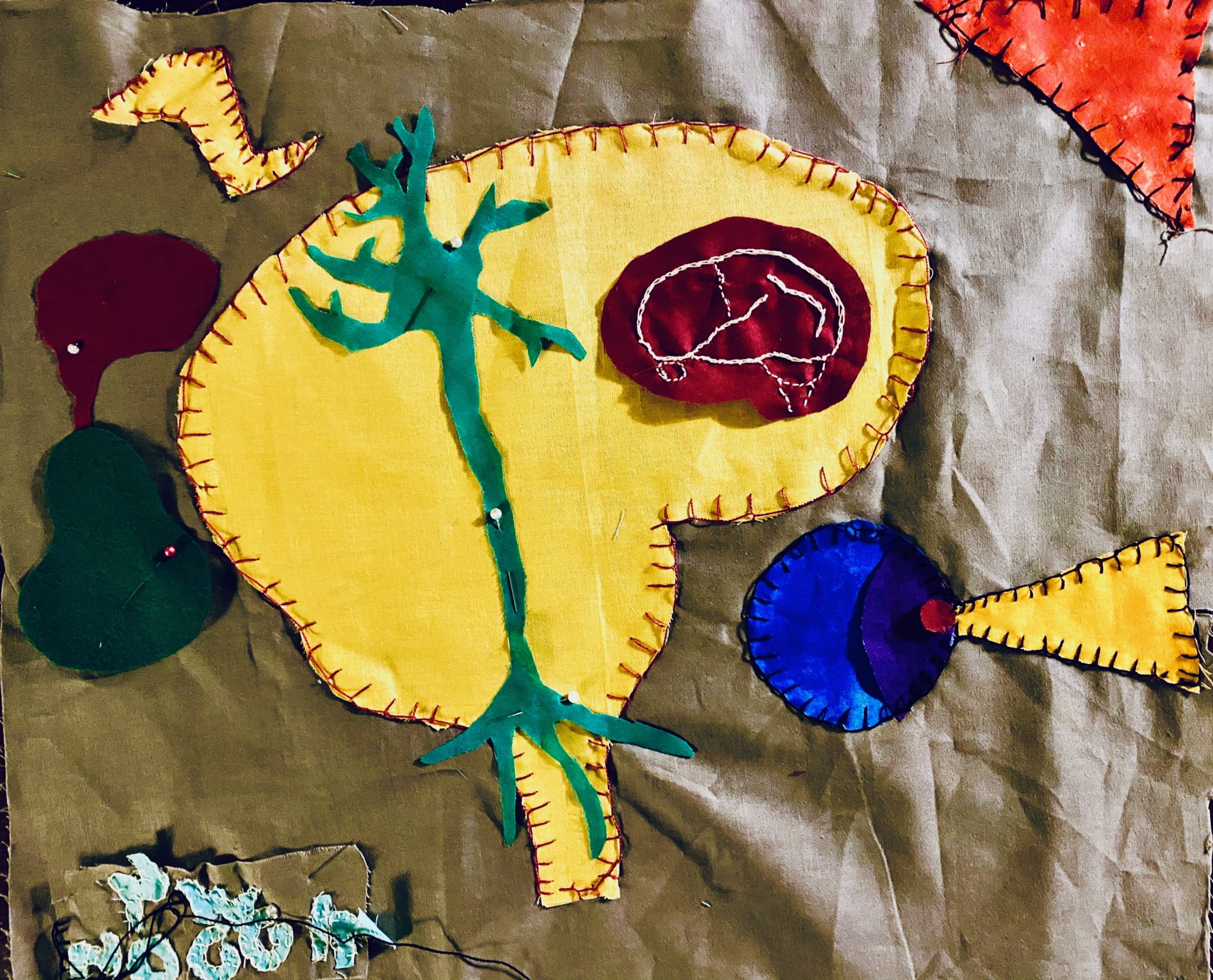
NW NOGGIN ABSTRACT
NW Noggin: Axons & Arpilleras – Addressing trauma and supporting community across disciplines and national boundaries
GRIESAR, W.S.* ** *** ****, LEAKE, J.* ** ***
No happiness or pain, no more forgetting”
Science needs investment and diverse perspectives. Integrating arts in STEM (STEAM) encourages more people to get involved.
Nonprofit NW Noggin (nwnoggin.org) organizes undergraduates and graduates to collaborate, build community networks and inspire people about neuroscience and art. Volunteers benefit from work across disciplines and institutions, serve as “near peer” role models, gain skill explaining research, and think creatively about careers. We’ve met over 40,000 academic priority K-12 students, homeless youth, incarcerated youth and members of the public since 2012!
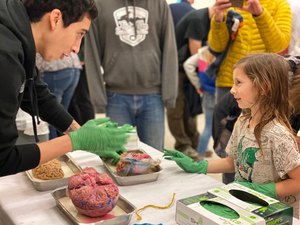
Extreme inequality defines the United States, with devastating brain, health and social consequences, as more people struggle to access food, water, education, public transit, healthcare and housing. Concentrated wealth isolates those with extravagant resources from the broader community. Isolation is worsened by degrading rhetoric from political leaders and pundits who protect privileges, often by dehumanizing others.
Inequality can also lead to the violation of human rights, and violence.

Valparaíso, Chile, home to both a long history of neuroscience research and astonishing art traditions, is currently targeted by a repressive and authoritarian government, whose leader, billionaire Sebastian Piñera, has declared “war” (guerra) on those protesting injustice.
Noggin partnered with Chilean artist/educator Cecilia Araneda to teach how the art of “arpilleras,” the sewing of embroidery and patchwork to depict aspects of life, has helped many express traumatic experiences and contribute to the memory of significant national violations of human rights.
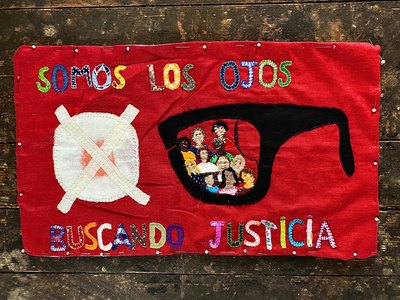
We participated in a public radio interview and displayed arpilleras and human brains at Street 14 Café during an “Art Walk” in Astoria, Oregon, and discussed neuroscience research on stress, trauma, memory, dehumanized perception, resilience and recovery.
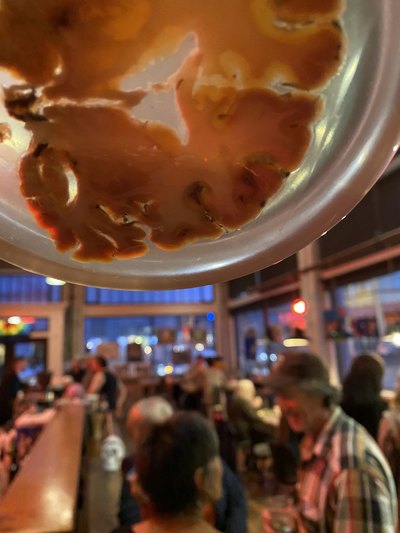
We then presented and crafted our own arpilleras at p:ear, a critical community center for support of Portland Oregon youth who lack access to safe, stable housing, while answering questions about behavior and the brain. NW Noggin is p:ear’s Community Partner awardee in 2020.
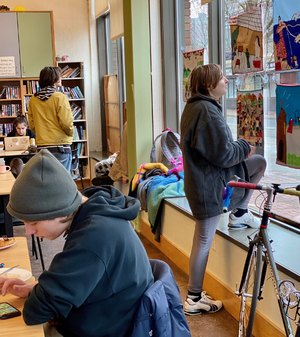
Building excitement and awareness of discoveries, educational options and careers through arts-integrated outreach across institutional, international and generational lines trains new scientists to collaborate, engages more communities, and increases awareness and support for investment in brain research and the arts.
* Department of Psychology, Portland State University; ** NW Noggin (nwnoggin.org); *** Department of University Studies, Portland State University; **** Department of Behavioral Neuroscience, OHSU
Sewing Memories, & Brains
